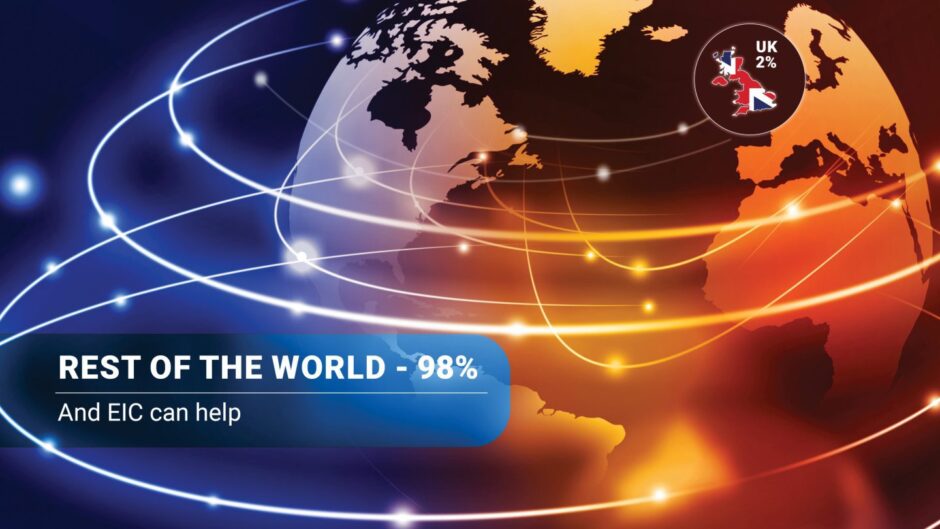
Stuart Broadley, CEO of Energy Industries Council (EIC) Discussed the current state of the UK energy sector:
-
Some Energy Voice online content is funded by outside parties. The revenue from this helps to sustain our independent news gathering. You will always know if you are reading paid-for material as it will be clearly labelled as “Partnership” on the site and on social media channels,
This can take two different forms.
“Presented by”
This means the content has been paid for and produced by the named advertiser.“In partnership with”
This means the content has been paid for and approved by the named advertiser but written and edited by our own commercial content team.
“The Kennedy family said, “Don’t get mad, get even”, in advocating for one suffering a loss to seek revenge.
Britain’s oil and gas players may not want revenge, but they are certainly reeling from Labour’s strict ideological stance on hydrocarbons. These policy levers try to accelerate transition to green technologies under the aegis of climate change, but risk a fraught and bloody job swap.
Prime Minister Keir Starmer stated at COP29 on November 12: “Let me be clear, there is no national security, no economic security, no global security, without climate security.”
What a change from 31 July 2023 when the Tory-led UK Government touted, still reeling from war in Europe, “Hundreds of new North Sea oil and gas licences to boost British energy independence and grow the economy” on their GOV.UK website.
While Trump leads the climate sceptics’ lobby with “Drill, baby, drill,” Starmer grasps the green nettle, almost no matter the challenge ahead.
The challenges are many, with green projects like grid expansion, offshore wind and nuclear all cited for investment, but likely years away from FID (final investment decision).
Meanwhile, the energy supply chain leans heavily on oil and gas which looks likely to decline in the UK too quickly for renewables to backfill – gambling 60 years of energy industry capability, 1 in 55 UK jobs and 9% of GDP.
Starmer is showing his cards
“The prime minister has ambitions to use climate leadership as the Trojan Horse of global moral-compass leadership.
After years of UK political turmoil – who can forget Brexit, Partygate and Trussonomics – Starmer wants to steady the UK ship on the world’s oceans, to reduce the feeling of seasickness, and to make the UK influential and investable again.
It is hard to criticise this desire for global recognition and respect, something UK policy-makers and business leaders all crave.
We are in a bubble in the UK
“Whatever your views about energy security, climate change, oil and gas and erratic energy policy changes, there is another strategy than revenge.
Exacerbated by the pandemic but with investment down since the 2014 oil crisis, business leaders have had to be resilient. Resilience often forced lower ambition, especially in terms of international growth, retreating to their bubble of domestic markets after years of travel, border, logistics, inflation and trade disruptions.
The Energy Industries Council’s Survive and Thrive research confirms this, with the development of new export markets being the least-used growth strategy by the energy supply chain for the last eight years. And yet, the world is open for business again.
The IATA’s June 2024 Global Outlook reporting that RPK (revenue passenger kilometres) has now fully rebounded from 2020 when air travel fell by 93%, now on track for record levels as business and personal travel, as well as a freight, boom.
It’s time to get exporting again
“Don’t get mad, get even” is emotive but exhausting and ineffective, whereas “don’t get mad, get exporting” puts control back in the hands of policy-makers and business leaders. It’s time for all stakeholders to realign, to look upwards and outwards again, to international growth.
The EIC’s DataStream database tracks more than $13 trillion of CAPEX projects across all energy sectors globally. About $2trn of that $13trn has already reached FID, which can therefore be defined as the addressable market already flowing into the supply chain, having the fastest impact on net zero and also on shareholder returns.
The UK accounts for only about 2% of that addressable world energy market, excluding HPC (Hinkley Point C).
Politics aside, UK is only 2%
“This 2% is equivalent to £40bn or $50bn which, if UK firms won 100% of market share – something we know won’t happen – it would still only sustain 20% of the £200bn annual revenue generated by the 3,700 UK energy supply-chain companies (source EICSupplyMap, defined as businesses with £1m revenue or more).
To put it differently, assuming UK firms typically win 30% of UK content, or £15bn (an optimistic estimate) then £185bn of those revenues must come from other sources.
The main method of finding additional revenues is diversification into non-energy sectors like defence, marine and infrastructure, which companies are investing in aggressively.
The exciting other source of potential growth is international trade, which, sadly, companies shy away from.
How to unlock the 98% market outside the UK?
“The first step in opening the 98% non-UK market is for the government to shift its focus, not just to moral-compass global leadership, but also to global trade growth.
The second step is for business leaders to see that the UK domestic energy market’s decline will lead to lower domestic investment and associated jobs, unless the gaps left by high-tech oil and gas jobs are filled by new demand from overseas.
There will certainly be more jobs to come in domestic renewables growth, but a much higher percentage of renewables CAPEX work is imported than in oil and gas. This means we will lose more jobs from the oil and gas decline than we will gain from renewables growth at the current trajectory.
Companies need to be supported on a return to their exporting journeys after years of headwinds. Their exporting skills are a bit rusty, the policy levers are inadequate and the overseas clients have found non-UK partners, but it’s not too late.
UK firms are still respected globally for their innovation and technology, ease of doing business, legal and governance systems, language and culture, and legacy of strong international supply chains.
Indeed, due to successful exporting investments in the 1980s, 1990s and 2000s, including in the UAE, Malaysia and Brazil, the UK already accounts for more than 20% of the in-country energy supply chain in key global hubs.
This global footprint of “UK Energy PLC” is a great trade platform to build on, while also unlocking significant soft power for Starmer’s moral compass. We just need to light the export touch paper again, with inspiring political leadership, policy hands of help, and business leaders who are ready to embrace the global market again.
The EIC was set up 81 years ago to help members export, diversify and grow around the world, and we are still helping today and into the future.”
Words by Stuart Broadley, CEO of Energy Industries Council (EIC).

